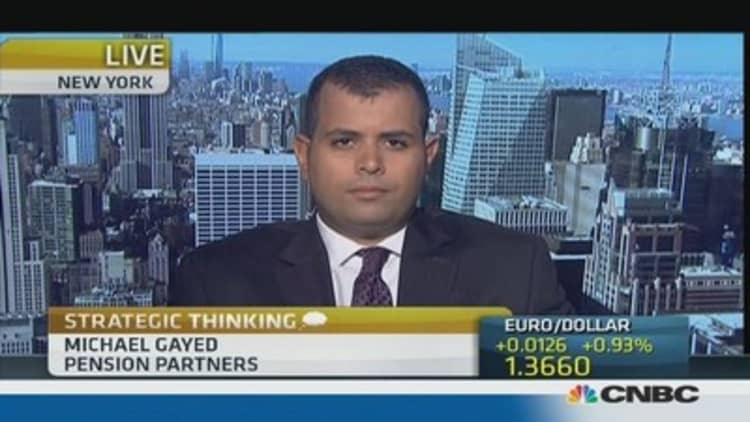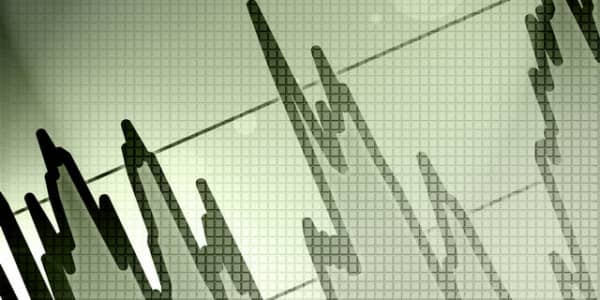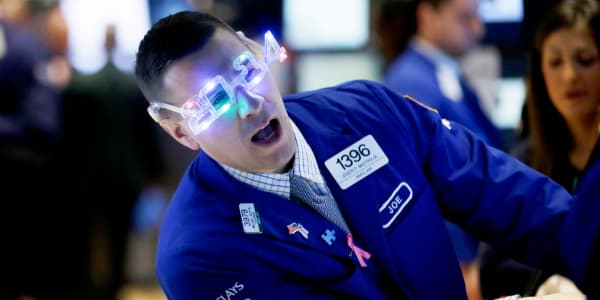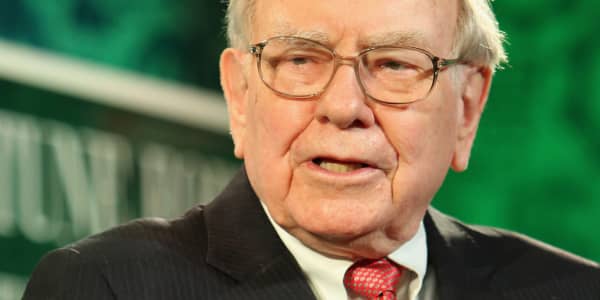Emerging market exchange-traded funds (ETFs) have been getting a booster shot from further signs the Federal Reserve will keep the pace of its stimulus program in place until early 2014.
An end—at least for the time being—to the political gridlock in Washington is also helping, by calming fears of a potential default on government debt and pushing investors back into riskier securities, such as emerging markets.
The iShares MSCI Emerging Markets ETF (EEM) is trading at a five-month high after collecting more than $422 million during the week ended Friday. It was one of last week's most popular ETFs in terms of net investor inflows behind the SPDR S&P 500 (SPY) and the iShares iBoxx $ High Yield Corporate Bond (HYG).
What risks exist? For one, investments in emerging markets are very sensitive to interest rates. When rates rose in May and June on concerns the Fed would begin tapering its bond-buying program, EEM tanked to a year-and-a-half low.
(Read more: Why Alibaba's IPO could crush Twitter's offering)
It's very difficult to feel confident in December [taper] given that we're going to repeat part of what just took place in Washington. We could, in fact, get more restrictiveness.Charles EvansChicago Fed President and FOMC voting member
Since then, as the tables have turned in regards to the expected taper date, EEM has rallied more than 21 percent versus a 12 percent gain in SPY, which tracks the S&P 500.
A falling U.S. dollar, sitting at an eight-month low, has also breathed new life into emerging market funds, which directly benefit from dollar weakness.
What do you get when you buy EEM? The ETF is heavily tilted toward large, export-oriented multinational firms headquartered in emerging markets. Its top country position is South Korea, and its top single holding is Samsung Electronics (3.92%).
EEM top countries:
- South Korea: 15.8%
- China: 13.1%
- Brazil: 11.7%
- Taiwan: 11.4%
Among emerging markets, some country-specific funds have far outperformed the broad-based EEM.
Best performing emerging market ETFs since June 24 bottom:
- Greece (GREK): 63.8%
- Egypt (EGPT): 49.2%
- South Korea (EWY): 33.0%
- China (GXC): 29.5%
- South Africa (EZA): 28.5%
(Read more: Jack Bogle's tips on teaching kids to invest)
If you're looking to invest in emerging markets, the Vanguard FTSE Emerging Markets ETF (VWO) is a cost-effective option with an expensive ratio of only 0.18 percent—about one fourth of EEM's 0.69 percent ratio. The main difference between the two funds is that, as of June 2013, VWO does not include exposure to South Korea, which (as shown above) accounts for the largest portion of EEM and has seen some of the best returns since EEM bottomed late June.
Since dumping South Korea on June 28, 2013, VWO has gained 11 percent, underperforming EEM, which is up 14 percent. VWO and EEM previously tracked the same index until the start of this year when Vanguard transitioned almost two dozen of its ETFs from MSCI indexes to others, like FTSE.

A note of caution for investors trying to capitalize on gains in emerging markets: You have to be able to handle volatile swings on a fairly frequent basis. For example, EEM has seen gyrations of more than 20 percent six times over the past three years. That's eye-catching by any standard.
(Read more: Forget gold, the VIX is the new trading safe haven)
It's also important to note that once taper talk is back in vogue, it could derail any further run for emerging markets. Analysts estimate the announcement of a slowdown in stimulus may not come until the Fed's March 2014 meeting.
"It's very difficult to feel confident in [a] December [taper] given that we're going to repeat part of what just took place in Washington," Chicago Fed President and FOMC voting member Charles Evans told CNBC's Steve Liesman on Monday. "We could, in fact, get more restrictiveness."
Lawmakers' temporary deal on the debt ceiling last week only kicked the can down the road, setting the stage for another possible budget battle early next year. The government is set to remain open until Jan. 15, 2014, with the debt ceiling increased until mid-February.
—By CNBC's Kristen Scholer. Follow her on twitter @KristenScholer





